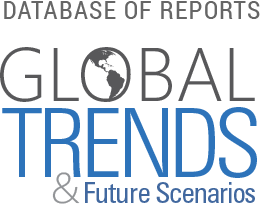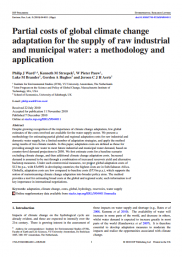
Partial costs of global climate change adaptation for the supply of raw industrial and municipal water: a methodology and application

Abstract
Despite growing recognition of the importance of climate change adaptation, few global estimates of the costs involved are available for the water supply sector. We present a methodology for estimating partial global and regional adaptation costs for raw industrial and domestic water supply, for a limited number of adaptation strategies, and apply the method using results of two climate models. In this paper, adaptation costs are defined as those for providing enough raw water to meet future industrial and municipal water demand, based on country-level demand projections to 2050. We first estimate costs for a baseline scenario excluding climate change, and then additional climate change adaptation costs. Increased demand is assumed to be met through a combination of increased reservoir yield and alternative backstop measures. Under such controversial measures, we project global adaptation costs of $12 bn p.a., with 83–90% in developing countries; the highest costs are in Sub-Saharan Africa. Globally, adaptation costs are low compared to baseline costs ($73 bn p.a.), which supports the notion of mainstreaming climate change adaptation into broader policy aims. The method provides a tool for estimating broad costs at the global and regional scale; such information is of key importance in international negotiations.
Keywords: adaptation, climate change, costs, global, hydrology, reservoirs, water supply
- Issues:
- Infrastructure, Climate Change, Natural Resources
- Region:
- Global
- Year Published:
- 2010
- Authors:
- Philip J. Ward, Kenneth M. Strzepek, W Peter Pauw, Luke M Brander, Gordon A Hughes, Jeroen C J H Aerts
- Institution:
- Environmental Research Letters (Journal) - IOPscience

